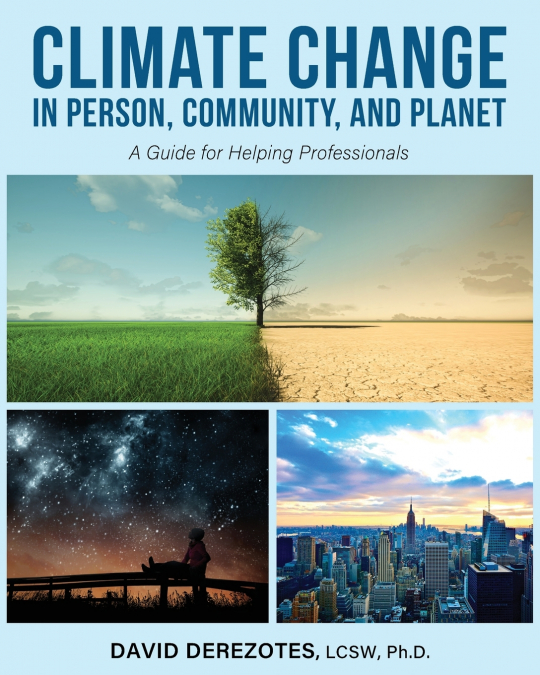
 Librería Perelló (Valencia)
Librería Perelló (Valencia)
 Librería Aciertas (Toledo)
Librería Aciertas (Toledo)
 Librería Elías (Asturias)
Librería Elías (Asturias)
 Donde los libros
Donde los libros
 El AlmaZen del Alquimista (Sevilla)
El AlmaZen del Alquimista (Sevilla)
 Librería Kolima (Madrid)
Librería Kolima (Madrid)
 Librería Proteo (Málaga)
Librería Proteo (Málaga)
'Yes, I am very concerned about the climate crisis, but how can I address it in my daily work as a helping professional?' Created for both students and practitioners, Climate Change in Person, Community, and Planet: A Guide for Helping Professionals attends to this common question. The primary thesis of this text is that an effective response to the climate crisis requires that we co-create a healthy climate change in our own human consciousness, in our 'humansystems' (families, institutions, and communities) and in our life-sustaining ecosystems (biomes and anthromes). Throughout, the text offers evidence that the wellbeing of each human being is profoundly interconnected with the wellbeing of all of humanity, of all other living things, and of our ecosystems. The climate crisis is defined to include not only global warming, but also the interconnected threats of air, water, and soil pollution and biodiversity loss. Informed by the author’s principles of Inclusive Practice and Climate-Sensitive Practice, readers are introduced to multiple strategies of engagement, assessment, and intervention that can be used in the classroom, office, health center, or community meeting. The pivotal topic of climate justice is provided in a focused chapter as well as diffused throughout the text, and the essential ecobiopsychosocialspiritual nature of effective professional practice is used as a theoretical foundation. Relevant to many disciplines including social work, psychology, nursing, teaching, public health, and environmental humanities, Climate Change in Person, Community, and Planet is ideal for courses that integrate ecological considerations into mental and physical healthcare, human services, and education. Its practical content aligns with courses that address human wellbeing, eco-psychology, environmental justice, and community engagement.